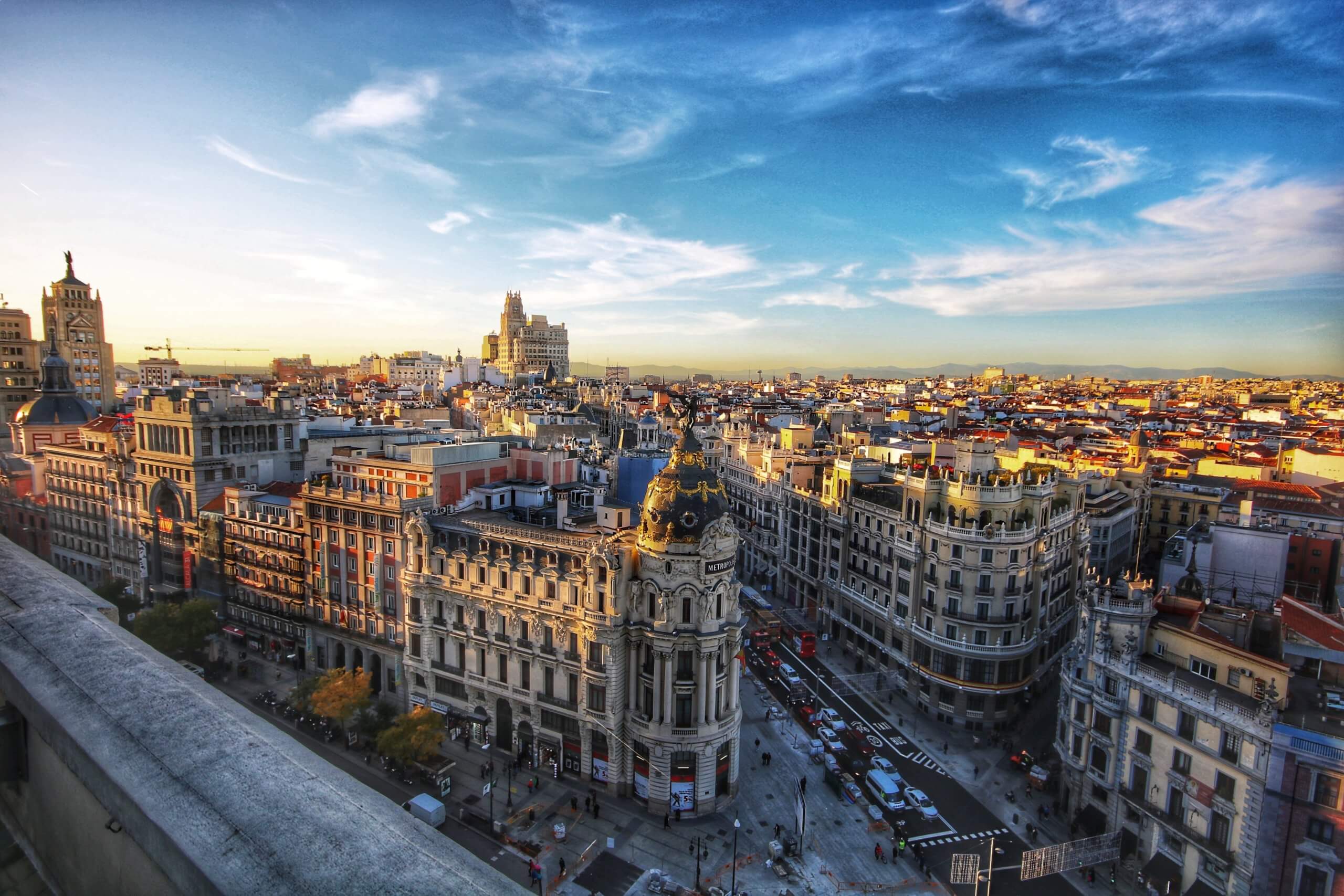- Guides
Our Top 10 Tips to Finding Friends Abroad
Let’s face it, moving abroad, where everything is unfamiliar, can feel like a bit of a maze. You’re struggling with...
Read moreGuides
All rumours are true: Ireland is a stunner. Located off the coast of England and Wales, this small island presents an uncommon natural richness and an astonishing diversity in its landscape, splashed throughout with lakes and boglands, covered by green rolling heals and majestic mountains and surrounded by a dramatic coastline. Each region also presents its character, culture, and dialect - proof of the island's richness and variety in all aspects.
The country has become one of Europe's success stories. Its recent economic growth and excellent standards of living have attracted multinational companies and expats alike. In addition, the charming character of its people is also something to appreciate - there's no better way to get to know the true soul of the country than a talk with its inhabitants. Indeed, lots of people describe Ireland as a very welcoming country. Céad míle fáilte!
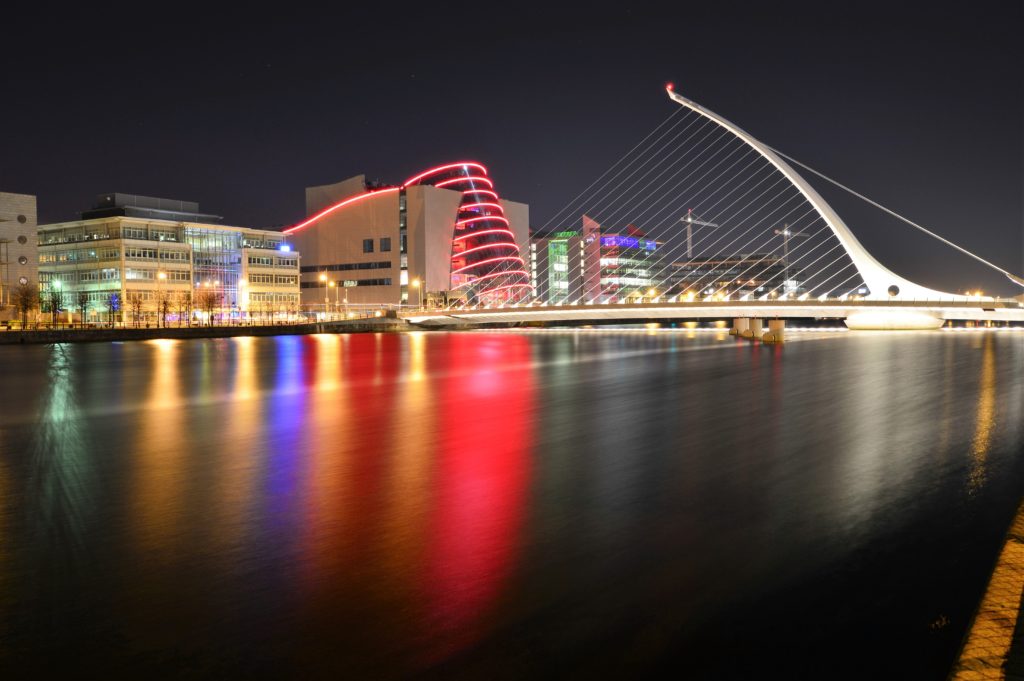
Whether looking for a beachside cottage, a country house or a modern apartment, you will have a wide range of accommodation options to choose from in Ireland. The most common types of accommodation in Irish cities are apartments and semi-detached row houses, while free-standing houses are more common in the suburbs or towns. Whatever the best option is, finding a suitable place to live is the first thing you need to do once you sign your job agreement. However, with the cost of housing continuing to rise in Ireland, particularly in the largest cities, there's a low supply for the high demand of accommodation in the country. For this reason, it might be a challenge to find a place that collects all your conditions. Our recommendation is to initially consider staying in short-term accommodation to give yourself time to settle in the new city and find a place you would prefer to live in once you know the local area better.
*Tip: Keep in mind that rentals are commonly referred to as "lettings" in Ireland, so get used to this new word!
As many expats settle in Dublin or Cork, where most job opportunities are found, it's relevant to have a quick look at the accommodation options in both cities:
Wherever you move, the way to start your accommodation hunting in Ireland is by browsing popular portals like Daft.ie, Rent.ie or Myhome.ie, or checking Facebook Groups. Real estate agents are another route when searching for housing in Ireland, but, unlike other countries, these often bill the renter rather than the property owner. The fee is usually the equivalent of one month's Rent. However, as the rental cost can be pretty high in some regions, you might consider sharing an apartment instead (and it's a perfect way to meet new friends!). There are plenty of websites to look at but some popular ones are Roomster.com and roomigo.io.
As a prospective renter, you might have to prove that you can afford the lease (you can just submit a bank statement), and agents or landlords could perform background and credit checks. It is just an established standard procedure and nothing to worry about!
Regarding lease agreements, these generally last for 6 or 12 months in Ireland, even though there is no standardised period as far as the law goes. However, neither party may end the tenancy before the end of the fixed term. On another note, you will most likely have to pay a security deposit together with the first Rent, which could be from a single month rent up to three months of Rent. The agreement will also outline what charges are included or those you will have to cover by yourself. The tenants usually cover utilities like internet, waste removal, electricity and gas or water. Things to consider here:
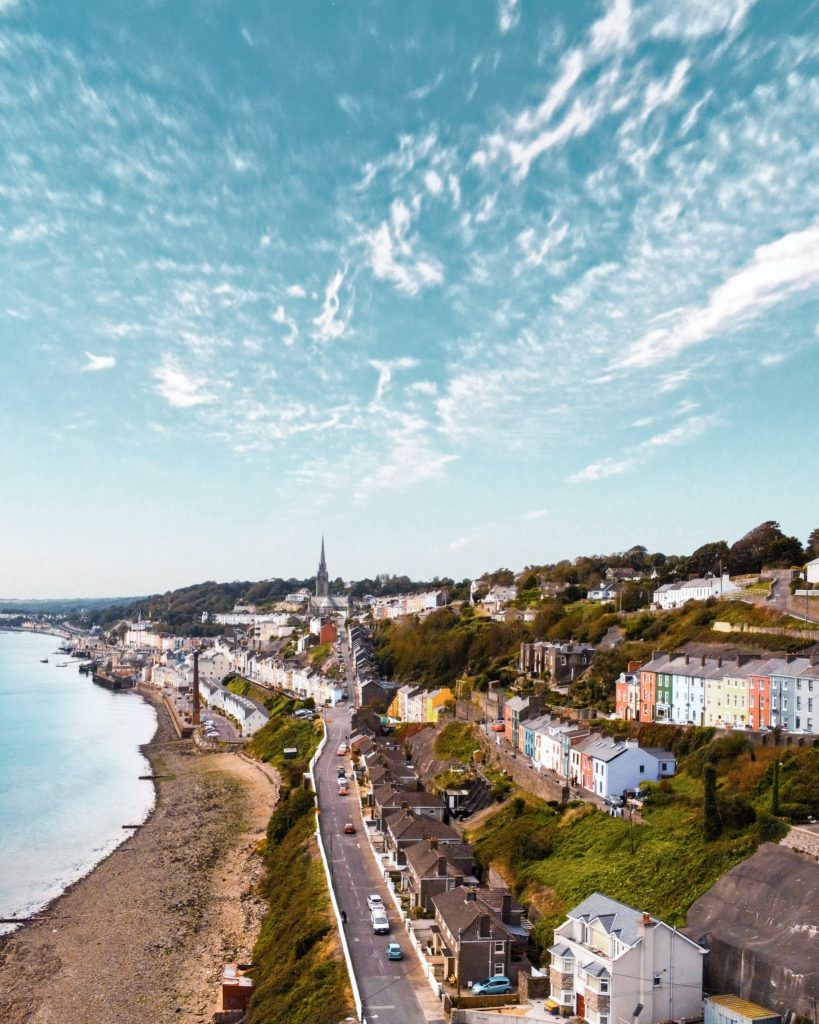

There are many different environments and activities for you to enjoy in Ireland. It might sound cliché, but there is indeed something for everyone. If you like city excursions, seaside activities, or prefer to be amidst beautiful nature, you will have everything you need here. It might be a small island, but the "Emerald Isle" has memorable and breathtaking landscapes, history is everywhere, and you will discover an abundance of cultural expression wherever you go. If you don't know where to start, you have the main spots to check after your arrival.
About one and a half hours by car from Galway, the Cliffs of Moher are one of Ireland's most famous sights and a UNESCO Global Geopark. They stretch for 8km on the west coast and stand 214m above sea level (reaching the highest point at the O'Brien's Tower). There you can take a walk along the trail to experience the power of nature at its most majestic - it is hard to find the words to describe the spectacular views one can have, especially during the sunset and sunrise.
Moreover, on a 3-hour drive, you can also reach The Ring of Kerry, an area of astounding natural beauty for sports enthusiasts and history lovers: cycling, horse-riding, or even water sports merge with the Ogham Stones (Iron age forts) and ancient monasteries.
*Tip: Having a week off? Then take the Wild Atlantic Way route, an impressive 2,500 km coastal driving route around this side of the island.
The Newgrange, Ireland's most famous prehistoric monument, is a fascinating stop older than Egypt's pyramids! Its most notable feature is the roof box above the passageway entrance - it aligns with the rising sun on the winter solstice to allow the tomb's chamber to fill with sunlight! The altar in the centre has intricate stacks of stone reaching a height of 19 meters. Something worth seeing.
Grafton Street is full of life. It's indeed Dublin's shopping heartland where you can find entertainment no matter where you go. There are countless places to stop by and enjoy the café culture that has taken off in the capital (if you want to delight yourself with a legendary Irish breakfast, go to Bewley's Grafton Street Café). Take time later to duck down the numerous alleyways and narrow streets to discover those little corners of the capital, surrounded by buskers, flower-sellers and performance artists.
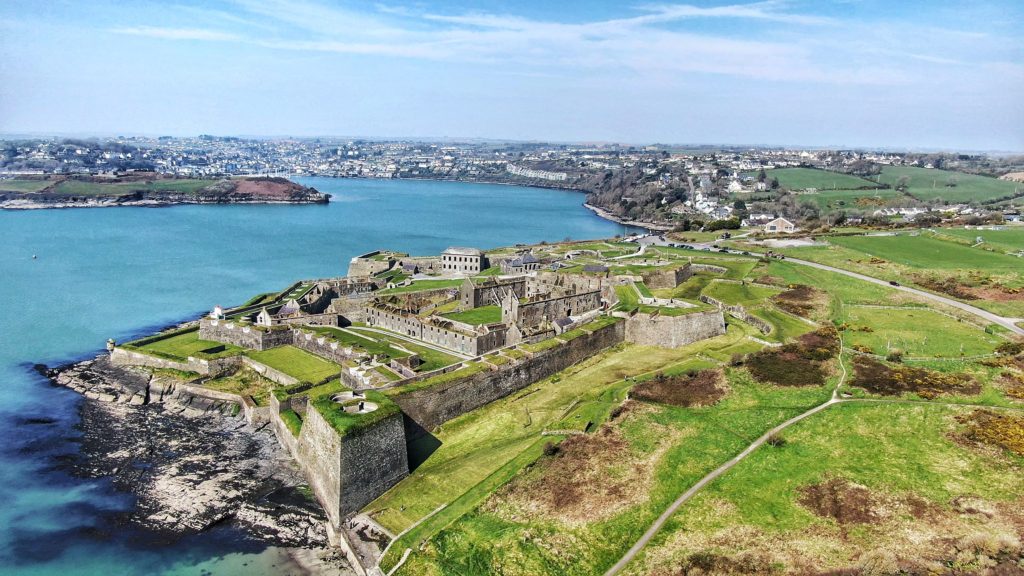
You can't go far in Ireland without catching a glimpse of a castle - there are more than 30,000 castles in the country! Although it's impossible to see them all, some are considered "the greatest" and worth visiting to take a taste of the past. For example, Ireland's most famous castle, Blarney Castle, is a medieval stronghold where visitors come to kiss its famous Blarney Stone to "gain the gift of eloquence". Others worth a stop are the Roch of Cashel, King John's Castle, Cahir Castle and Dunquaire Castle.
Since the late 1700s, this peculiar market in Cork has held a special place in the hearts of the locals: it stocks the best of local produce, including artisan bread, cheeses, fresh seafood and meat… It's a great place to start if you want to try cooking authentic Irish cuisine. The Irish Stew (a recipe from 19th century), the Soda bread (so soft), white pudding (a must in the Irish breakfast), the Colcannon (sed in many of the Irish fortune-telling traditions) or the Beef and Guinness Pie (the perfect combination for those who love the Guinness beer and the slowly cooked meat) are some examples of the delightful dishes. All are part of the history and traditions of the island and are charming and irresistibly delicious!
Last, if you wish to linger a while around the market, there's some cosy corners and cafés upstairs where you can observe the crowd while taking a break and enjoy an Irish Coffee or, why not, a Guinness! The café culture is taking over in Ireland, and coffee shops are becoming a place to meet friends or simply work or read a book!
Every 17th of March Ireland has a great party. As the legend goes, Saint Patrick drove all the snakes out of the country. Whether you believe the legend or not, this is the biggest party of the year where everyone is Irish. People wear green and fill their clothes and streets with clovers to enjoy concerts, parties, and parades. If you are going to move and live in Ireland, you can't miss this!
Expats are usually supported by well-paying jobs in Ireland, enabling them to enjoy a high quality of life. For this reason, you will also find that the cost of living in the country is manageable, but that always depends on the town or city you are moving to (being Dublin the most expensive place to live in), your personal needs and the lifestyle you choose.
Generally, Ireland isn't as expensive to live in as other European countries such as the UK or Sweden. However, always remember that it is an island nation, which means most goods need to be imported, and therefore, the price can be higher.
| Dublin | |
| Groceries | |
| 1 kg oranges | €2.20 |
| 12 eggs1 kg potatoes | €3.15€1.42 |
| Restaurant/cafe | |
| Beer (0,5 l) | €5.50 |
| Meal for 2 at restaurant | €70 |
| Cappuccino | €3.40 |
| Sport & Leisure | |
| Gym membership | €41.35 |
| Cinema ticket | €12 |
| Public transport | |
| Single ticket bus | €3 |
| Taxi (normal tariff - 1km) | €1.50 |
| Average salary (NET) | €2,900 |
It's pretty easy to travel between Ireland's larger cities by public transport. All public transportation in the country is above ground, making it an ideal way to get around and see everything the country has to offer.
Long-distance bus service is operated by Bus Éireann, which also provides local service in Cork, Galway, Limerick, and Waterford. There are also express bus lines that go directly from one big town to another, stopping at a limited number of places. Note that outside of the peak season, service is limited; some routes disappear altogether. Prices are similar for all seats. For example, a round-trip from Dublin to Cork can costs €27 and Dublin to Galway city, 22€.
Nevertheless, small towns and remote villages, through TFI Local Link, usually have just one or two bus services per week, particularly on market days. For this reason, renting or getting a car is probably the best way to explore rural Ireland, even though traffic has become increasingly heavy on main routes. In rural routes, expect slow farm machinery and be prepared for wildlife to cross the road suddenly. Like its neighbouring island, driving in Ireland is on the left side. Irish drivers are considered polite and generally courteous. So if you are used to driving on the right and feel a bit hesitant, just take into account the main premise to always stay on your left.
Regarding travelling by train, Irish Rail trains are generally reliable, reasonably priced, and comfortable. You can also easily reach all the principal towns from Dublin, though service between provincial cities can be roundabout. For example, to get to Cork City from Wexford, you will have to go via Limerick Junction. The best deals are available online, booking at least one week in advance. You can even save more by using a TFI Leap Card, which can be used in specific stations in Dublin and from the capital to other towns and cities.
Picturesque areas are particularly enjoyable on a bike, though you may need to buy your own as rental outlets have dried in rural areas. If you want to travel quickly from Dublin to outlying areas, it's also worth considering the internal flights available. Depending on season and demand, prices range from around €20 to €90 for a single journey.
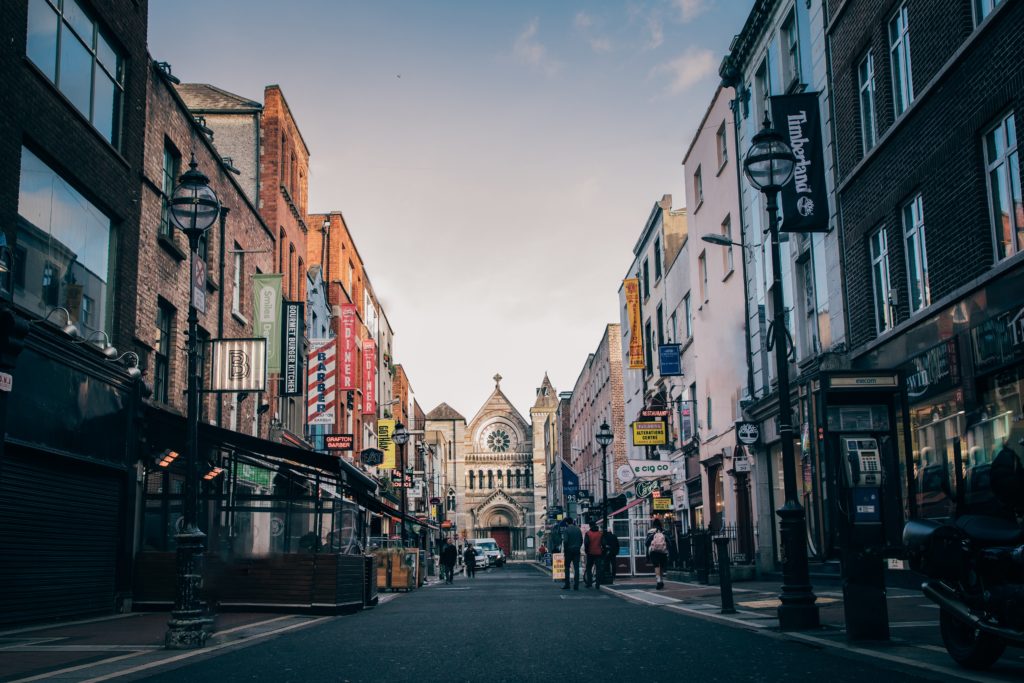
Immersing yourself into a new culture takes effort and perceptiveness, and it's something that can be challenging even for the most well-travelled, interculturally-minded global citizen! However, Ireland is well-known as one of the most international hubs in Europe - the cities are bustling cosmopolitan centres offering a mix of people and cultures. While meeting other expats in the same situation as yours is easy, it may take some time to form lasting friendships with locals.
Wherever you live, the simplest thing to do is to take a chance, get involved in something you are passionate about and don't be afraid to step outside of your comfort zone. For example, it is good to attend different social gatherings related to culture and art. Internationally known for producing some of the world's most significant literature, music, theatre, Dublin continues to live up to its strong history of forging culture. There are always events happening around town, many of which are free or relatively inexpensive!
Another option is getting involved in Gaelic Athletic Association clubs. GAA clubs are social centres: members, athletes, and spectators are part of the community, and it's an excellent way to meet people and learn about Irish life and history. But if you are not so into sports, you might enjoy the pub culture in Ireland. Irish pubs are inviting, friendly, and chatty places, not to mention warm, comfortable spots to get out of the rain! There it's possible to meet all kinds of people, and the Irish are very open and love to "have some craic" - a term for news, gossip, fun, entertainment, and enjoyable conversation. It's how an Irish person is likely to pass the time with their friends.
Although English is the most widely spoken language in Ireland, most claiming it as their first language, Irish is the official language. It can be seen on all official government documents and public transport, signs, and public buildings. Many people, including locals, still struggle to hold a simple conversation as "Gaeilge", as it's so different from other languages. however, it can be fun and helpful to learn a smattering of common words and Irish greetings:

During the 2008 global recession, expats and Irish nationals alike struggled to find work in the country. Luckily, the job market bounced back in record time and currently presents decent economic growth levels and low unemployment levels (at around 7-8% in September 2021). Many multinational companies have their European bases here, which makes the country an international hub and one of Europe’s Silicon Valley. Furthermore, Ireland is seen as strategically useful for specific industries in Ireland to hire expats, given the skill gaps in numerous sectors (the variety of jobs and opportunities is indeed something that attracts those who want to live and work abroad):
Although you will most likely work in an international environment, there are essential aspects to be aware of regarding the Irish business culture. In general, integrity, cooperation and likeability go a long way towards establishing trust in the work environment. Communication is vital, and the atmosphere is rather welcoming and friendly - all coworkers in an Irish company tend to remain open, relaxed, and humble when talking to each other. Other particular factors regarding the working culture are:
Last, although also common in some Nordic countries, some Irish people may inhale short breaths while saying “yes” during a conversation. This might be unfamiliar to many Europeans, so don’t be alarmed if someone makes this noise (they only show agreement!)
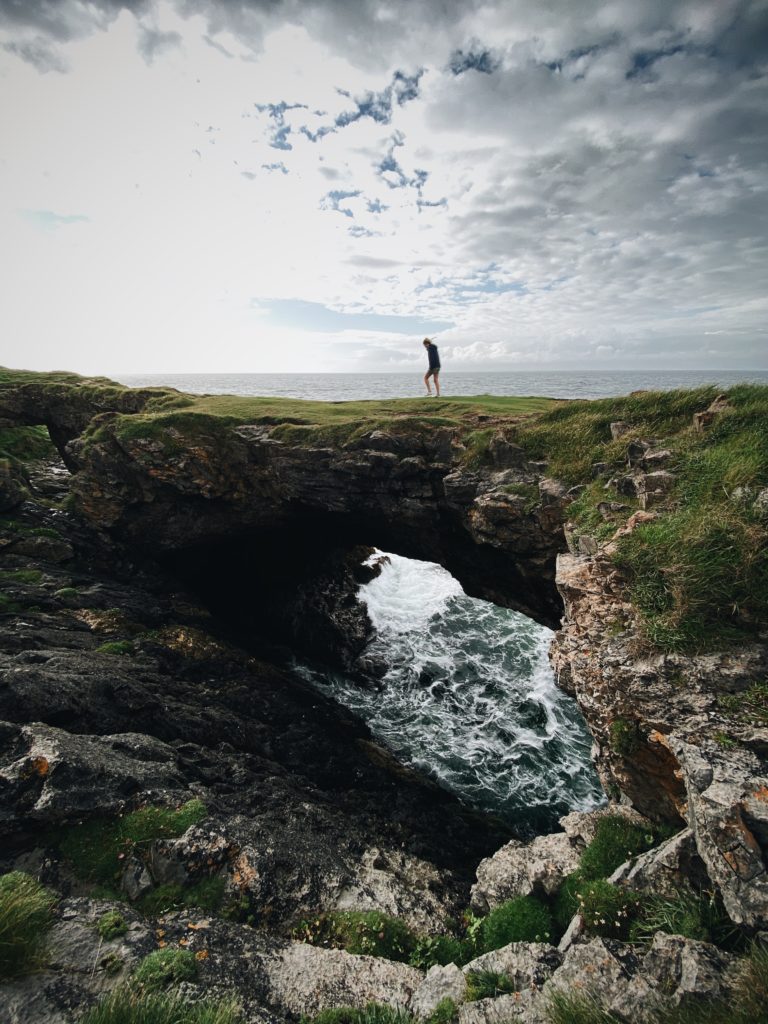
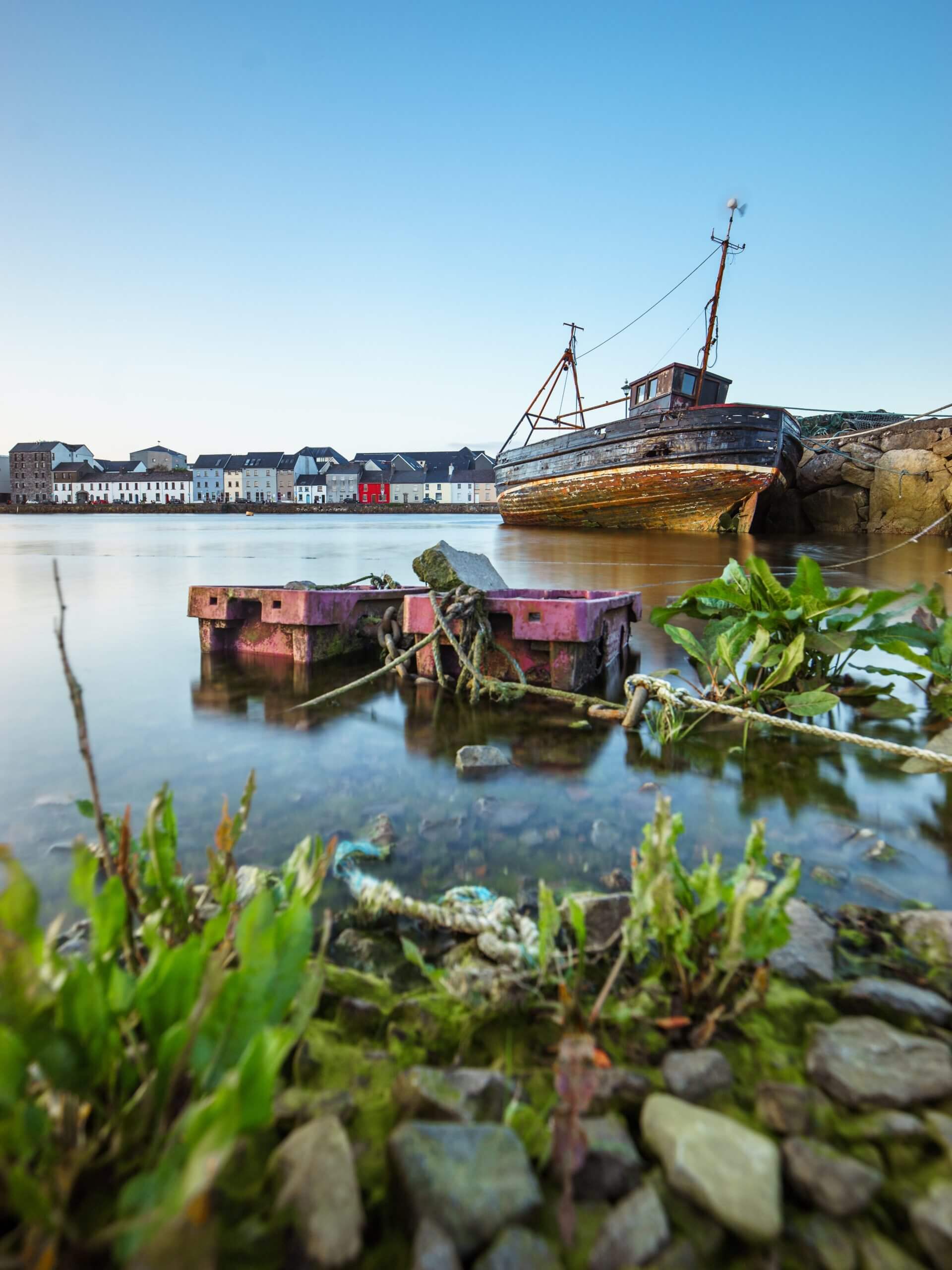
In Ireland, your maximum average working week cannot exceed 48 hours. This does not mean you can never work more than 48 hours in a week, but that your average weekly hours over 4 months should not exceed 48. If you work on Sundays, you might be entitled to a benefit, such as extra pay or paid time off work. There is no legal right to get paid for additional hours.
If you are going to start working in shifts, your employer should tell you the starting and finishing times at least 24 hours before your first day of work; give you at least 24 hours notice of your working hours for each day you have to work, and give you 24 hours’ notice if you have to work additional hours. However, they can ask you to work at less than 24 hours notice in unexpected cases (for example, if a colleague gets sick).
You are legally entitled to 4 weeks of paid annual leave per year if you work full time. However, some companies may give their employees more than 20 days holiday per year, and this will be detailed in your employment contract. Additionally, if you have worked for at least 8 months, you will be entitled to an unbroken period of two weeks of annual leave.
Regarding sick leave and sick pay, employers in Ireland are not required by law to pay employees while they are on sick leave. And even if the sick leave is paid, they can even decide the duration and rate of the pay. However, you might be entitled to the ”Illness Benefit”, a state benefit, even though this relies on previous social insurance contributions and is paid at a maximum of €203 a week.
The good news is that the Irish Government has announced a new Statutory Sick Pay Scheme for 2022 that gives more rights to long-term employees if they fall sick. To be entitled to paid sick leave under the new scheme, you must be working for your employer for at least 6 months. You will also need to be certified by a GP as unfit to work.
Generally, your job agreement will state how much notice you or your employer must give. But if it doesn’t specify it, the Statutory minimum notice (i.e the shortest period of notice you are allowed to give under Irish law) is one week.
*You don’t have to give notice if you have been working in the company for less than 13 weeks.
However, if your employer is the one that intends to terminate the contract, the required notice will depend on how long the company has employed you:
| Length of Service | Minimum Notice |
| Thirteen weeks to two years | One week |
| Two to five years | Two weeks |
| Five to ten years | Four weeks |
| Ten to fifteen years | Six weeks |
| More than fifteen years | Eight weeks |
The national minimum wage in Ireland has been €10.20 per hour since 1 January 2021. The past few years have seen Irish salaries climb by about 5-7% annually, and the average yearly salary of a full-time employee is about 35,000€. If we consider the cost of living, it’s a decent salary to leave without worrying too much about the expenses and enjoy the adventure abroad!
Your employer deducts tax on income earned from your job on behalf of Revenue, the Irish Government agency responsible for taxation. This is known as Pay As You Earn (PAYE), and the amount of tax deducted will depend on your salary and your personal circumstances:
| 20% on amounts up to: | 40% | |
| Single person | €35,300 | Balance |
| Married couple/civil partners, one income | €44,300 | Balance |
| Married couple/civil partners, two incomes | Up to €70,600(increase limited to the amount of the second income) | Balance |
| One parent family | €39,300 | Balance |
All PAYE taxpayers are also entitled to a tax credit known as the Employee Tax Credit. This is worth €1,650 in 2021. Tax credits reduce the amount of tax that you have to pay.
Moreover, there’s another tax on your income called “Universal Social Charge (USC)”. It is charged on your gross income before any pension contributions (PRSI, paid into the Social Insurance Fund, which are at an 8.8% rate):
| Rate | Income band |
| 0.5% | Up to €12,012 |
| 2% | From €12,012.01 to €20,687 |
| 4.5% | From €20,687 to €70,044 |
| 8% | From €70,044.01 and over |
| 11% | Self-employed income over €100,000 |
Once you are fully registered in the country (see “Arriving in Ireland” section), you will get a Tax credit certificate, which shows the rate of tax that applies to your income and the tax credits you are entitled to. Your employer will receive a “Revenue Payroll Notification (RPN)” that contains this certificate so that they can deduct the correct amount of tax.
As said, Irish culture is friendly and inviting, and this creates a favourable environment to start building your professional network and improve your career prospects. Relationships are significant in Ireland, so talking to people, attending events, and establishing a good rapport is key. When going to networking events, try to stay social and avoid being reserved, which may turn off some people. You can get ideas of events to attend in Internations, which has active groups in both Cork and Dublin, and eventbrite, which shows current events (both leisure and work-related) all over the country. These events are great ways to meet fellow expats and locals who can help you settle in the country, advise you on the best practices in your work field, and nurture your knowledge!
If you prefer to use the power of social media, get involved in the conversation on the platform, share content with your network, comment on posts of your interest, and request a connection to establish an enriching professional relationship.
*Tip: for our women candidates, Network Ireland supports the professional and personal development of women in the country and offers mentoring, events, and conferences.

Since Ireland is a part of the European Union, it is not difficult for European candidates to relocate here. You do not need to register with the local immigration office, and you do not need a residence card to live here. However, keep in mind that Ireland is not part of the Schengen Area. This means you need to show your passport or national ID card if you come to Ireland from the Schengen Area.
However, when you arrive in Ireland, you will need to get a Personal Public Service Number (PPSN). This number is a unique reference number that helps you access social welfare benefits, public services and information in Ireland. A PPS Number is always 7 numbers followed by either one or two letters. To get it, you need to go to one State Agency or apply online at mywelfare.ie with the following documentation:
Moreover, if you are working in Ireland for the first time, you need to register for tax. It would be best to do this as soon as possible so that your employer receives your Revenue Payroll Notification (RPN) before your first payday. Otherwise, the taxation of all your earnings will be at a higher rate - something called “emergency tax”.
Your new employer must deduct tax from your pay under a system called “PAYE”. To make sure that your tax is correctly dealt with from the start and that your employer deducts the right amount of tax from your pay, you should do two things:
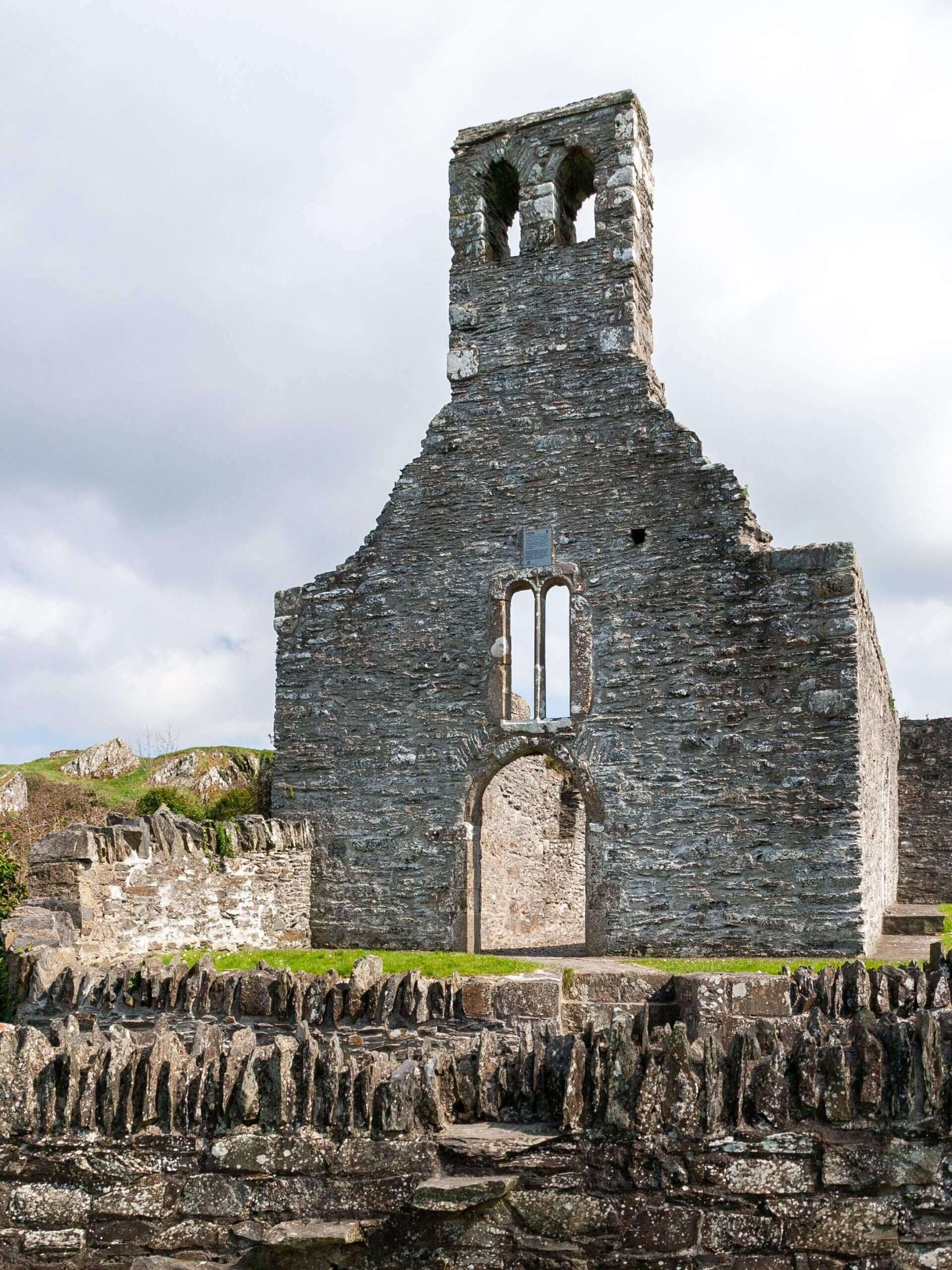

Ireland has a superb public healthcare system run by the Health Service Executive (HSE). Entitlement to health services in the country is primarily based on residency and means rather than on your payment of tax or pay-related social insurance (PRSI). Regardless of nationality, any person accepted by the HSE as ordinarily resident in Ireland has eligibility to health services. To prove yourself ordinarily resident immediately upon your arrival to Ireland, you will need to submit your employment agreement or housing lease to the HSE.
Public healthcare in Ireland covers various services from general practitioner visits to emergency services, maternity care, overnight hospital stays, and more. However, there are two separate categories to the healthcare system. Category 1 is for those people who have medical cards, and category 2 is for those without medical cards. Whether or not you qualify for the Medical Card system depends on your income and means. Therefore, it is most likely that you will be part of Category 2. Here, there will be charges for a lot of different medical-related services:
*Tip: After proving your residence in Ireland to the HSE, you have the right to choose and register yourself with the General Practitioner in your local area that you prefer.
However, nearly 40% of Irish residents use private healthcare insurance, one of the highest percentages among European countries. Although the public healthcare system is of exceptionally high quality, the popularity of private medical care is partly due to the costs associated with the public system for those not eligible to Category 1. With private care, the waits are much shorter, the diagnostic procedures are more high tech, and dental, optical and aural services are always available for the insured. For this reason, we also recommend you consider taking out international private insurance that can also protect you in Ireland.
You’ll need an Irish bank account to get paid and pay your bills and taxes. Luckily for all expats, opening a bank account in Ireland is relatively simple for all residents.
The most common bank account in Ireland is a current account, an everyday account with a debit card connected. You may also decide to open a savings account, which offers a higher interest rate for long-term saving.
There are a lot of banks to choose from. When doing your research, only consider banks that are regulated by the Central Bank of Ireland, which is part of the European System of Central Banks. Some examples are Bank of Ireland (oldest and largest bank), Allied Irish Bank, Ulster Bank or KBC Bank Ireland.
From there, try to find the best deal. It’s common for banks to charge a maintenance fee, which might often be avoided by making a recurring monthly deposit or keeping a minimum balance in the account. Additionally, many banks in Ireland charge fees for using ATMs outside their network, so make sure your bank has ATM locations that are convenient for you.
Once you know the bank that better fits your needs, call the local branch to make an appointment. Some banks in Ireland will allow you to open a bank account online, but you will be required to undergo a more rigorous verification process. If you’re already in the country, it’s easier to go to the branch and open an account in person. In most cases you will have to bring 3 documents:
If all your documents are in order, you should be able to walk out with your account number. Your debit card will come by mail, and, in most cases, your PIN number will follow separately. You will receive additional instructions in your email regarding how to set up online banking.
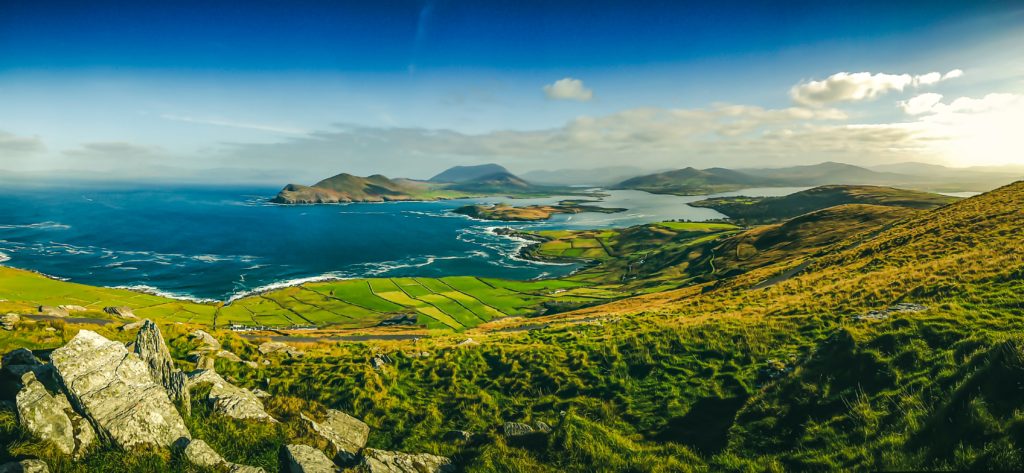
Ireland is not only a lovely country to call home for its endless beauty and wildlife, greenery and charming towns and its friendly and welcoming people. The country has also attracted companies and professionals from all over the world for its pro-business culture, which has made it one of the fastest-growing economies in Europe. Consequently, the country has become far more diverse and adaptive to accommodate a multicultural nation!
Although Ireland does not have sunny and sandy beaches to enjoy all year round, it doesn't need sunshine to warm your heart. The land of Saint Patrick and the Leprechauns will quickly become a part of you with its strong historical and cultural traditions, merged with the modernity and prosperity of its job market. Can you imagine what this would mean for your career? Apply for a job in Ireland through Workwide Recruit now!
Let’s face it, moving abroad, where everything is unfamiliar, can feel like a bit of a maze. You’re struggling with...
Read moreWelcome to the beating heart of Spain – Madrid! This bustling metropolis offers a unique blend of rich culture, historical...
Read more
